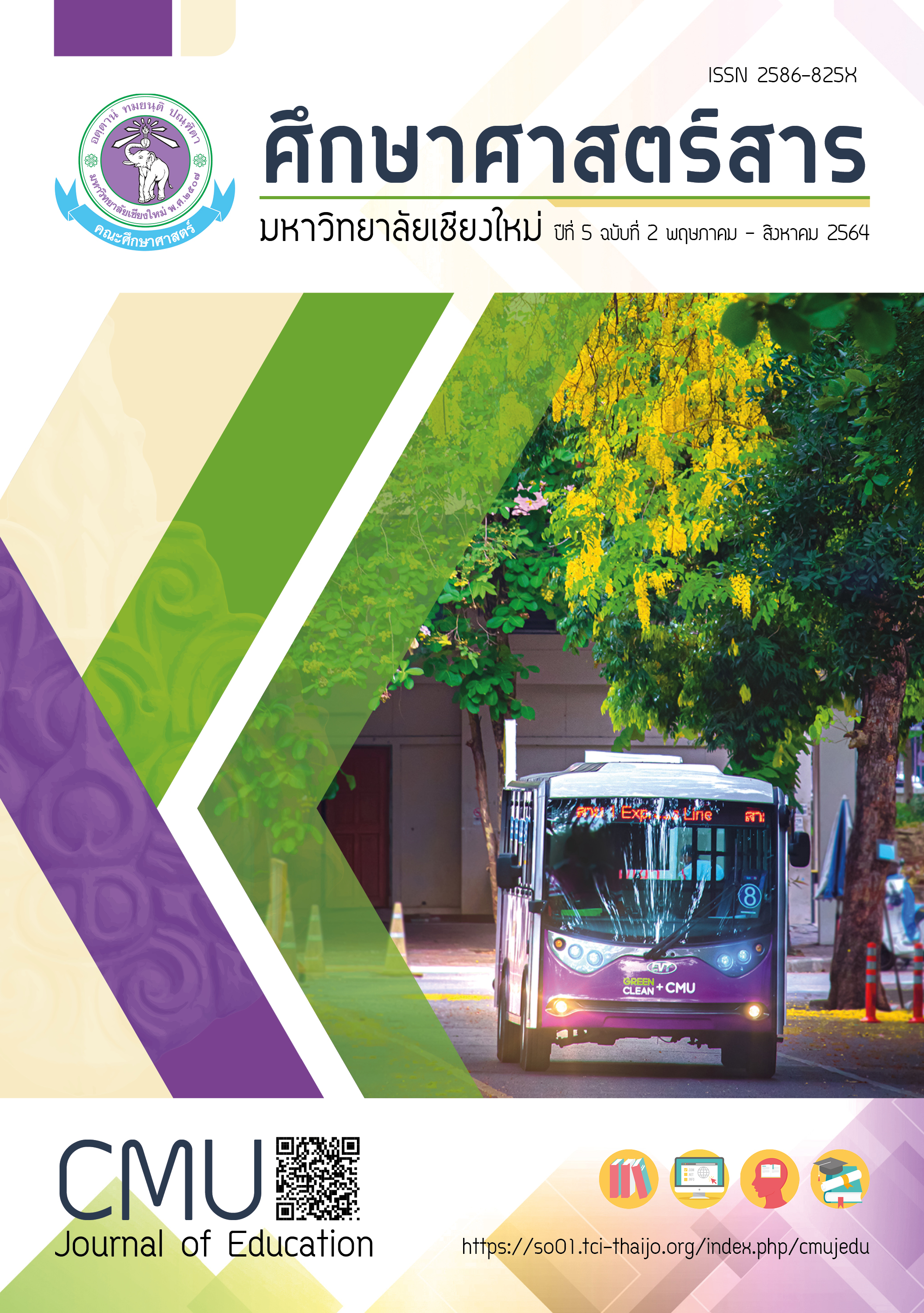แนวคิดเรื่องเสียงและการเปล่งเสียงเพื่อเสริมพลังอำนาจผู้เรียน
Main Article Content
บทคัดย่อ
แนวคิดเรื่องเสียงอาจไม่ได้เป็นของใหม่สำหรับวงการศึกษาไทย หากแต่ยังไม่ได้มีการนำมาใช้อย่างกว้างขวาง อีกทั้งยังขาดการทบทวนด้านแนวคิดทฤษฎีเพื่อชี้ให้เห็นความสำคัญต่อการเสริมพลังอำนาจผู้เรียน โดยเฉพาะจากมุมมองศาสตร์การสอนเชิงวิพากษ์ บทความนี้มีวัตถุประสงค์เพื่อนำเสนอการทบทวนแนวคิดเรื่องเสียงและการเปล่งเสียง (Voices) ทั้งจากแนวทางเสรีนิยมและแนวทางศาสตร์การสอนเชิงวิพากษ์ โดยจะให้ความสำคัญกับมุมมองจากศาสตร์การสอนเชิงวิพากษ์ ซึ่งเสนอแนวทางการจัดการเรียนรู้ที่ส่งเสริมเสียงและการเปล่งเสียงของผู้เรียน และบทบาทของครูผู้สร้างการเปลี่ยนแปลง บทความมีข้อเสนอแนะว่าแนวคิดเรื่องเสียงและการเปล่งเสียงตามแนวทางศาสตร์การสอนเชิงวิพากษ์ควรได้รับการพิจารณาอย่างจริงจังในบริบทการศึกษาของไทย เนื่องจากเป็นแนวทางที่ส่งเสริมทักษะที่สอดคล้องกับการปฏิรูปการศึกษาในปัจจุบัน ไม่ว่าจะเป็นการเรียนรู้อย่างมีส่วนร่วม การคิดอย่างมีวิจารณญาณ และการเป็นพลเมืองโลกในศตวรรษที่ 21
Article Details

อนุญาตภายใต้เงื่อนไข Creative Commons Attribution-NonCommercial-NoDerivatives 4.0 International License.
หากผู้เสนอบทความมีความจำเป็นเร่งด่วนในการตีพิมพ์โปรดส่งลงตีพิมพ์ในวารสารฉบับอื่นแทน โดยกองบรรณาธิการจะไม่รับบทความหากผู้เสนอบทความไม่ปฏิบัติตามเงื่อนไขและขั้นตอนที่กำหนดอย่างเคร่งครัด ข้อมูลของเนื้อหาในบทความถือเป็นลิขสิทธิ์ของ Journal of Inclusive and Innovative Education คณะศึกษาศาสตร์ มหาวิทยาลัยเชียงใหม่
เอกสารอ้างอิง
ทิศนา แขมมณี. (2560). ศาสตร์การสอน. กรุงเทพฯ: สำนักพิมพ์แห่งจุฬาลงกรณ์มหาวิทยาลัย.
นงเยาว์ เนาวรัตน์. (2561). การศึกษาพหุวัฒนธรรม: มุมมองเชิงวิพากษ์และการปฏิบัติการในโรงเรียน. เชียงใหม่: วนิดาการพิมพ์.
วิจารณ์ พานิช. (2555). วิถีสร้างการเรียนรู้เพื่อศิษย์ในศตวรรษที่ 21. กรุงเทพฯ: มูลนิธิสดศรี-สฤษดิ์วงศ์.
สำนักงานคณะกรรมการการศึกษาขั้นพื้นฐาน กระทรวงศึกษาธิการ. (2547). คู่มือปฏิบัติงานคณะกรรมการสถานศึกษาขั้นพื้นฐาน. เข้าถึงจาก https://www.mdh.go.th/view.php?article_id=6941.
Banks, J. (2007). Multicultural Education: Characteristics and Goals. In J. Banks and C.A.M. Banks (Eds.), Multicultural Education: Issues and Perspectives (6th Edition),(pp.3-32). USA: John Willey and Sons, Inc.
Banks, J. (2010). Multicultural Education Issues and Perspectives (7th Edition). New Jersey: John Wiley & Sons.
Banks, J. (2014). An Introduction to Multicultural Education (Fifth Edition). Boston: Pearson Education.
Broom, C. (2015). Empowering Students: Pedagogy that Benefits Educators and Learners. Citizenship, Social and Economics Education, 14, 79-86.
Freire, P. (1972). Pedagogy of the Oppressed. London: Penguin.
Freire, P. (2000). Pedagogy of Freedom (First Published 1996). Maryland, U.S.A.: Rowman & Littlefield Publishers, Inc.
Giroux, H. (1988). Schooling and the Struggles for Public Life: Critical Pedagogy in the Modern Age. Minneapolis, MN: University of Minnesota Press.
Giroux, H. (1997). Pedagogy and the Politics of Hope: Theory, Culture & Schooling. Colorado: Westview Press.
Giroux, H. (1998). Teachers as intellectuals: Towards a critical pedagogy of learning. Westport, CT: Greenwood Publishing Group.
McLaren, P. (2003). Life in Schools: An Introduction to Critical Pedagogy in the Foundations of Education (Fourth Edition). Boston: Allyn and Bacon.
Robinson, C., Taylor, C. (2007). Theorizing student voice: values and perspectives. Improving School, 10, 5-17.
Rudduck, J., Fielding, M. (2006). Student voice and the perils of popularity. Educational Review, 58, 219-231.
Sleeter, C. E. (1991). Introduction: Empowerment and Multicultural Education. In C. E. Sleeter (Ed.), Empowerment through Multicultural Education, (pp.1-26). New York: State University of New York Press, Albany.
Taylor, C., Robinson, C. (2009). Student voice: theorising power and participation. Pedagogy, Culture & Society, 17, 161-175.
UNESCO. (2019). Empowering Students for Just Societies: A Handbook for Secondary School Teachers. France: UNESCO.


